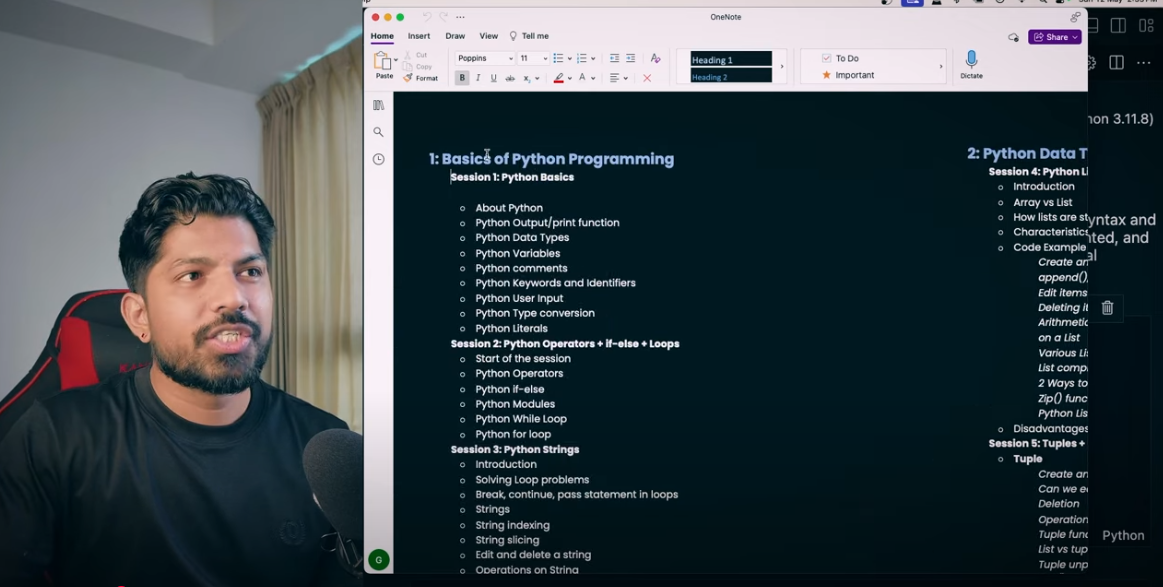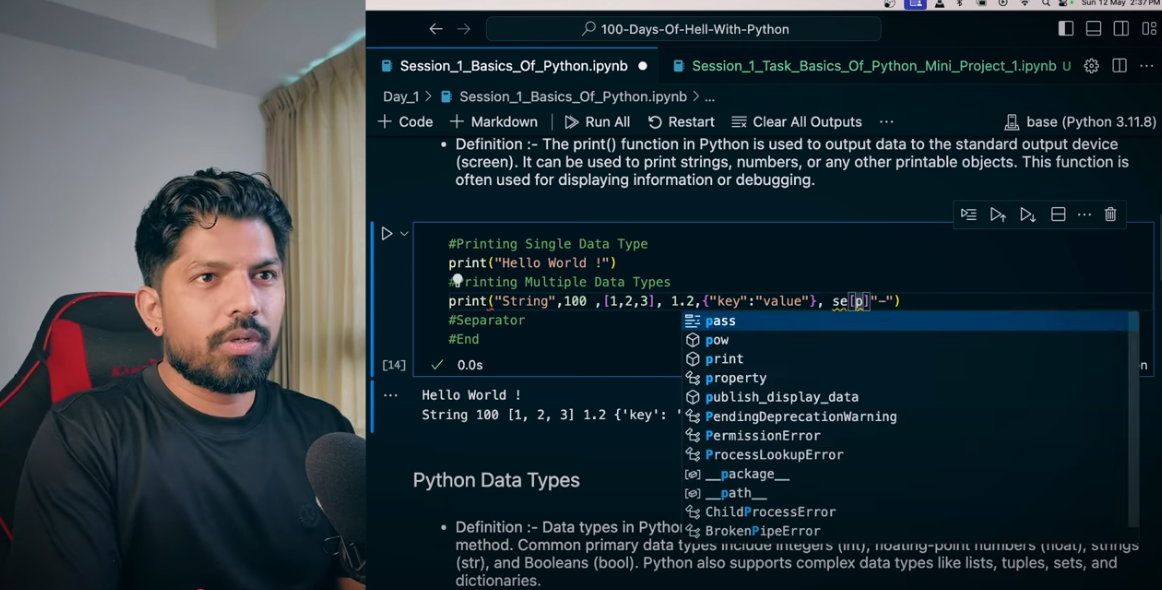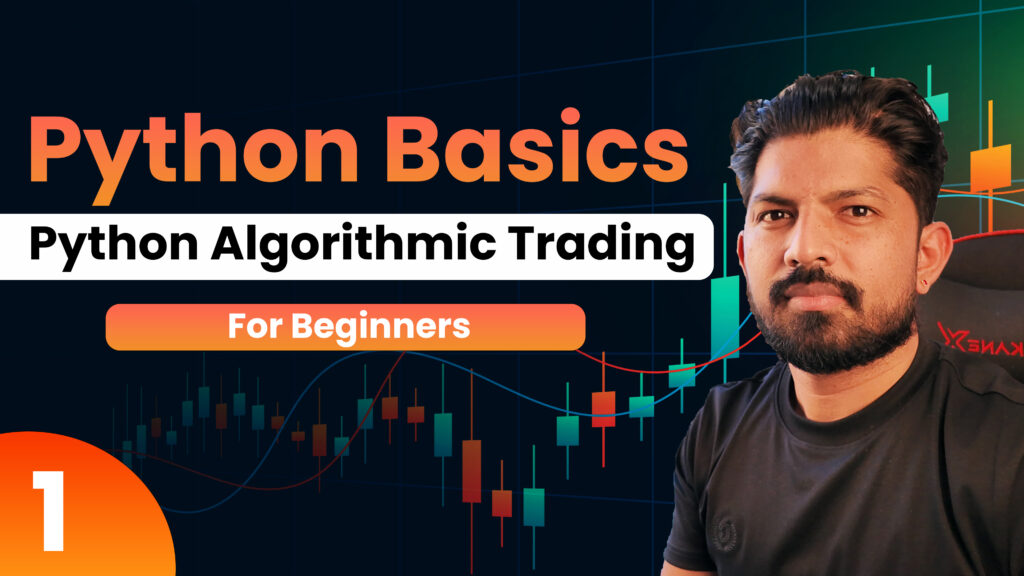Become an Algo Trading Expert in 100 Days – Day 1 Starts with Python
Do you want to learn algorithmic trading? If yes, you can become an expert algo trader in the next 100 days — and the journey begins with Python.
What is Python?
Python is a high-level interpreted programming language known for its clean and simple syntax.
Not only is this language easy to read, but writing code in it is also quite beautiful and straightforward.
Interpreted vs Compiled Language
Interpreter: Python reads and runs the code line by line. That is, as soon as you write a line, it can be run immediately.
Compiler: On the other hand, the compiler first reads the entire program at once, then runs it.


Features of Python
Multi-paradigm support: You can code in all three ways in Python – procedural, object-oriented, and functional.
Object Oriented Programming (OOP): We will learn OOP in detail in the upcoming video.
Flexibility and Versatility: Python can be used for web development, data analysis, artificial intelligence, scientific computing, and more.
Why Python for Algo Trading?
- Easy to Learn: Python is such an easy language that anyone can learn it and start programming in 1-2 weeks.
- Close Relation to Math: Python has many pre-built mathematical modules that make your coding easier and faster.
- “Batteries Included” Philosophy: Python already has many built-in functions — like you can reverse a string with just one line.
- Library and Community Support: Libraries like NumPy, Pandas, Matplotlib and a strong developer community make it even more powerful.
100 Days Algo Trading Plan
We will cover these topics in the next 100 days:
Day Topic
1–10 Basic Python Programming
11–20 Python Data Types
21–30 Object Oriented Programming
31–40 Advanced Python
41–50 Beginning NumPy and Pandas
51–60 Advanced Pandas
61–70 Data Visualization
71–80 Data Analysis Techniques
81–100 Real World Algo Trading Projects
Watch this Day 1 video tutorial
Best Python Libraries for Algo Trading:
Pandas & NumPy – Data analysis & handling
TA-Lib – Technical indicators for quantitative analysis in Singapore
Freqtrade – Open-source crypto trading bot
Setting Up Your Algorithmic Trading Environment
Step 1: Install Python & Required Libraries
pip install pandas numpy ta freqtrade
Step 2: Set Up a Trading API (Binance, Coinbase, etc.)
Step 3: Implement a Basic Trading Strategy
import pandas as pd
data = pd.DataFrame({‘Price’: [45000, 46000, 47000], ‘Moving_Avg’: [45500, 45700, 46500]})
data[‘Signal’] = data[‘Price’] > data[‘Moving_Avg’]
print(data)
Introduction to Freqtrade Strategy for Crypto Trading
Freqtrade is one of the best algorithmic trading software in the USA for automating crypto trades.
How to Install Freqtrade?
git clone https://github.com/freqtrade/freqtrade.git
cd freqtrade
./setup.sh –install
How Freqtrade Helps?
Supports backtesting & paper trading
Implements custom crypto trading strategies
Ideal for quantitative traders in Singapore & the USA
Developing a Simple Trading Strategy
Using RSI Indicator for Trade Execution
import talib
# Sample price data
prices = [45000, 45500, 46000, 47000, 46500]
# Calculate RSI
rsi = talib.RSI(prices, timeperiod=14)
if rsi[-1] < 30:
print(“Buy Signal”)
elif rsi[-1] > 70:
print(“Sell Signal”)
6. Backtesting & Optimizing Your Trading Strategy
What is Backtesting?
Backtesting helps traders test their strategies using past data before deploying them live.
How to Backtest in Freqtrade?
freqtrade backtest –strategy MyStrategy
Go ahead—challenge yourself and solidify your learning!
Day 1: Python Basics
![]()

